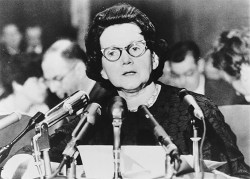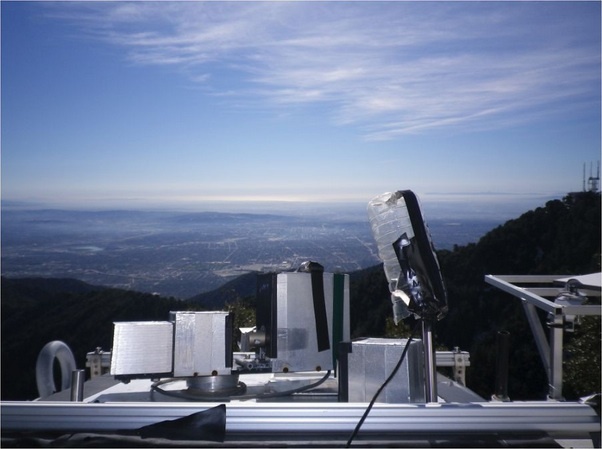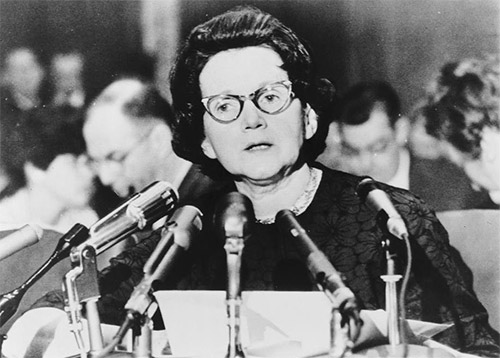Send your question to Umbra!
Q. Dear Umbra,
Recently, as my son was doing his homework, he asked, “Dad, who is Rachel Carson?” I gave a brief biography, then asked why he wanted to know. His worksheet for health class included a question about Carson’s role in the EPA’s decision to ban DDT. My son’s teacher had told the class to skip that question “because she was just a crazy lady.” My sputtering and fuming induced my son to say that he was sorry he had asked. He expressly forbid me from sitting in on this teacher’s class, or doing anything that might make her grade him unfairly. So what can I do? This teacher, who also teaches American history, has crossed a line that I cannot accept.
Andrew E.
Skamokawa, Wash.

Library of CongressRachel Carson has become a bit of a lightning rod.
A. Dearest Andrew,
As a fan of facts in general, I understand your sputtering. But as you might know, your son’s teacher is not alone in her opinion of Carson, whose Silent Spring transformed how the public regarded the risks of pesticides. Attacks on Carson began the moment the book was published in 1962, and haven’t stopped since. These days, they are primarily based on the notion that she is responsible for the banning of DDT, a chemical her (mostly conservative) critics believe could have prevented millions of malaria-related deaths. The full story is rather more nuanced than that, of course. I encourage you and your son to read this helpful account or this one for a little more information about why Carson has become a bit of a lightning rod.
But your question is whether you should rush over to your son’s school, Birkenstocks a-flappin’, and demand to know why his teacher is filling the heads of the Skamokawa youth with lies, damn lies. I say not so fast.
You have done the most important thing, which is to give your son the facts. If that has not quelled your urge to do something, you could consider writing the teacher a note explaining what transpired at home and expressing, as diplomatically as you can, your concern. I do wonder if it’s worth a kerfuffle over one comment made in passing by an overworked teacher, but if your line has been crossed, so be it. We should not be afraid to ask questions about our children’s education, especially given some of the powerful anti-fact forces at work. Perhaps set up a meeting. Listen. Be open-minded. What you hear might surprise you.
But if instead the teacher twirls her evil mustache and says she would have gotten away with it if not for that meddling 20th-century biologist, you could consider several next steps. You could take your concerns to the administration, though in a school so small that the health teacher doubles as the history teacher, you might not encounter a great deal of capacity to deal with such an issue. Another approach might be to find a way to get more involved as a volunteer. You could offer to put together some materials on Carson and her work. Or perhaps lead a discussion one day on environmentalism; or lead a field trip along the nearby Columbia River, where DDT still lingers 40 years after the EPA ban; or put together a panel of experts who could talk about the role of pesticides and other chemicals in our modern lives. An overworked teacher might appreciate those gestures, though it goes without saying that your son will pass out from the sheer mortification of it all.
I must admit to a lack of direct experience with parenting teenagers. But having consulted expert sources ranging from the U.S. Department of Education to the Siblings Fisk, I think the most important thing you can do is recognize that children are going to encounter a whole range of perspectives in life, including yours. Keep talking to your son and to his teachers. Explore thorny issues with him and give him the resources to learn more. Instill in him the confidence to draw his own conclusions and the eloquence to defend them. And at the very least, don’t show up in his class tomorrow. Geez, dad.
Adolescently,
Umbra




